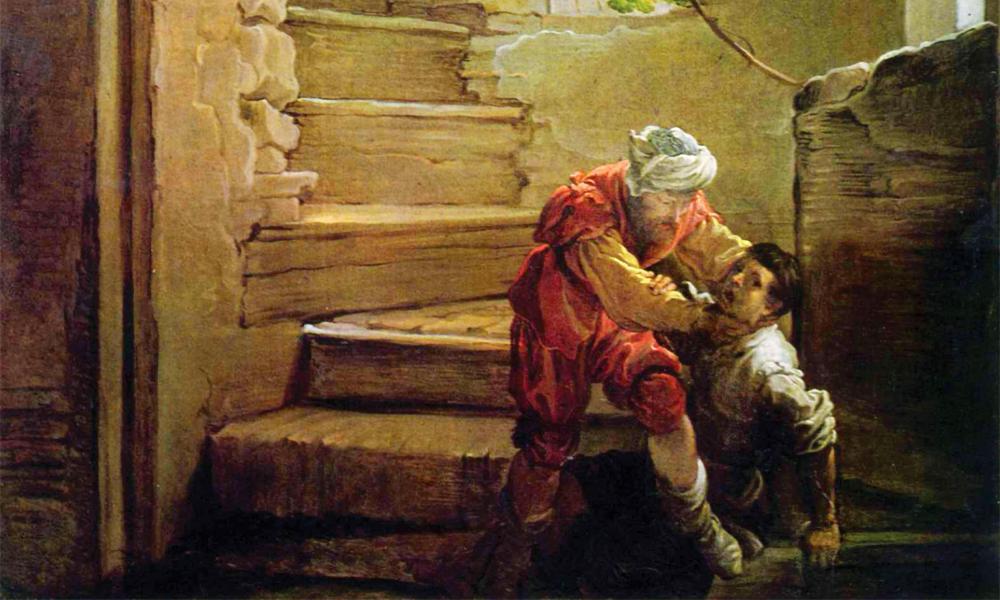
In the opening scene of “Les Misérables,” Jean Valjean is introduced as a former convict who has just been released from prison. He’s struggling to find food and shelter when he comes across the home of a kind-hearted bishop. Valjean is initially welcomed, but he repays the bishop’s hospitality by stealing some valuable silverware and fleeing in the middle of the night.
However, when Valjean is captured and brought back to the bishop by the authorities, expecting punishment for his theft, something remarkable happens. The bishop, instead of accusing Valjean, tells the police that he gave the silverware to Valjean as a gift and even gives him two additional silver candlesticks. The bishop’s act of forgiveness and generosity is a turning point in Valjean’s life. Valjean is deeply moved by the bishop’s kindness and begins his journey toward redemption.
In today’s parable, we find the opposite of the story in “Les Misérables.” Instead of being grateful for the mercy received and changing his life, the unforgiving servant continues to be as hard-hearted as before.
This parable presents a great disproportion—ten thousand talents versus one hundred pence. A pence, or denarius, in the time of Jesus, was worth a full day of work. So, a hundred pence was a hundred days of work. However, one talent was equivalent to six thousand pence. Therefore, ten thousand talents were around sixty million days of work. For a rough idea, a hundred days of work at the federal minimum wage today is about $5,800, while sixty million days would be about $3.48 billion. The relation is six hundred thousand to one.
In other words, whatever the Lord has forgiven us is six hundred thousand greater than whatever we need to forgive our brothers. In other words, the mercy we have received from God is vast and immeasurable, while the mercy we are asked to impart to others is comparatively tiny to what God has forgiven us. This emphasizes the need to be compassionate, forgiving, and merciful to those who wrong us or are indebted to us in some way.
In essence, the message is that our forgiveness of others should reflect the boundless forgiveness and mercy we have received from God. We should not hold onto grudges or seek revenge but should be quick to forgive and show compassion, recognizing that our own forgiveness and salvation are contingent on our willingness to extend such grace to others.
Forgiving from the heart, genuinely forgiving, as Jesus challenges us to do, is not easy. But the parable gives us some clues on how we can accomplish it.
Firstly, we need to be aware and reflect often on how much mercy we have received from the Lord. And this not in such a way as fostering despair and lack of trust, but precisely the opposite. We need to rejoice in being a vessel of God’s boundless mercy.
Secondly, we want to foster a sense of gratitude. We need to know we have been blessed beyond measure and feel the desire to love the Lord back. It is absolutely necessary to be grateful.
Thirdly, out of gratitude, we want to forgive our brothers and sisters from our hearts.
May the mercy of the Lord touch our hearts as Jean Valjean was touched by the bishop in “Les Misérables.” That experience of compassion and love will change our hearts to love as Jesus loves and to be a mirror of his mercy to our brothers and sisters.

